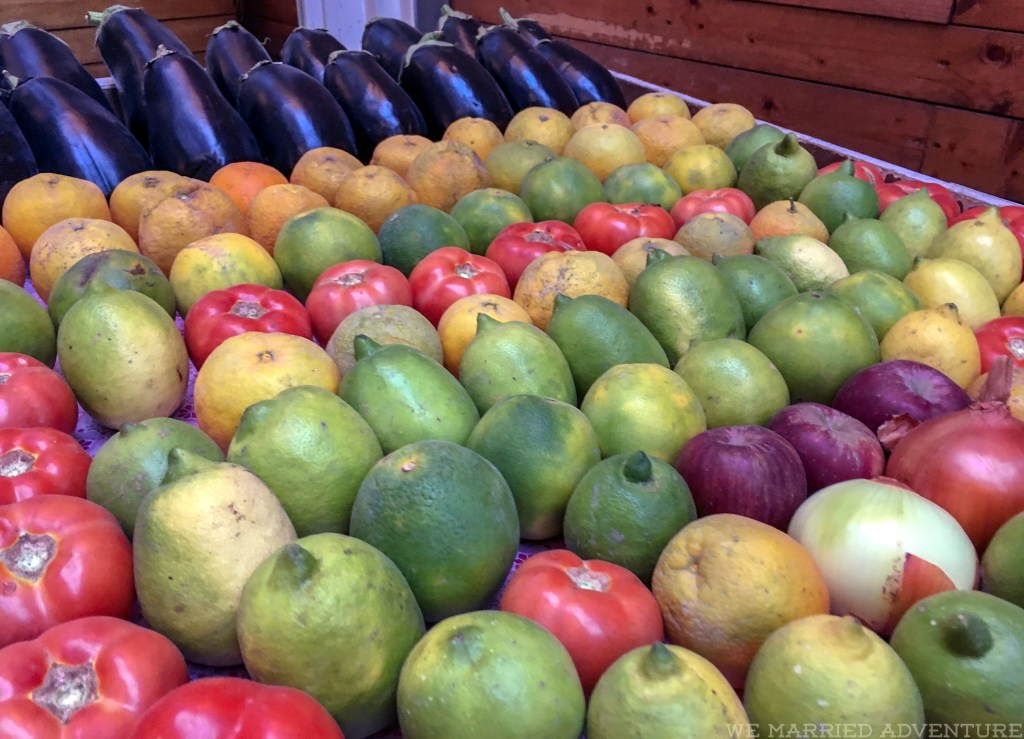We arrived in Beirut during a major storm, the kind with sideways sheets of rain and wind that bends huge trees as if they were blades of grass. Our hotel had a shuttle waiting for us at the airport, and we rode silently in the dark, assuming our driver didn’t speak English since he hadn’t said a word.
We were surprised when he pulled under the hotel’s lighted portico half an hour later, turning to us with a smile and a greeting: “Welcome to Lebanon, sir.”

Except for a couple of weeks in Morocco and Tunisia, we’d spent the past five months in Europe, and I was out of practice with Middle Eastern culture. American women are accustomed to their independence, and it’s tough to get used to everyone ignoring you in favor of direct conversation with your husband.
It was also challenging to get used to Middle Eastern prices. Eastern Europe had spoiled us, with incredible wine in Georgia for $8 USD a bottle and craft beer in Croatia for $3 USD a pint. It was tough to swallow paying $50 USD for two glasses of scotch as a nightcap after our sodden journey from the airport.

We awoke early the next morning to brilliant sunshine, the proverbial calm after the storm. We were excited to explore Beirut for a couple of days before heading out of town to Baalbek and Lebanese wine country. But the storm had more to say.
As Mike stood on our 14th floor balcony overlooking the Mediterranean Sea, a body washed ashore.
Local news had been broadcasting the story of a female tourist who’d gone missing two days prior as the storm was gathering strength. She’d gotten caught in the undertow and disappeared into the sea as her family searched frantically. And here she was on the sand just below us.
Hotel staff quickly and reverently covered her with sheets until the ambulance could arrive to take her to the morgue.
It was shocking to witness, even though it’s the sort of thing that can happen anywhere on earth when Mother Nature unleashes her power. But it felt a bit more jarring to witness in Beirut, having grown up in America in the 1970s and ’80s when news reports were filled with images of violent warfare. Subconsciously, perhaps, we were expecting to see death.

Beirut is one of the oldest cities in the world, mentioned in the Amarna letters from the New Kingdom of Egypt during 15th century BC. But its inhabitants nearly brought things to an end in the 1970s with a devastating civil war.
This was followed soon after by war with the Israelis in the 1980s, and the Lebanese people have been working to rebuild Beirut for nearly three decades since. You can still see bullet holes, but you can also see hope.

And the thing Mike most hoped for in Beirut was shawarma.
As a kid in Saudi Arabia, his favorite food was Lebanese shawarma. He’d buy the sandwiches by the dozen, washing them down with electric orange Mirinda soda as he sat on the curb with his brother and their friends from the Riyadh American International School.
He’s had shawarma all over the world, but nothing thus far had recreated this indelible childhood memory.
I was determined to find him the best shawarma spot in town, the place filled with locals who know what they’re doing when in comes to this Middle Eastern specialty.
If you’ve never had shawarma, let me describe it for you. Delectably spiced chicken that’s slow-roasted on a spit before being shaved into little bits that fall into the juices and form perfectly crispy morsels. Add creamy hummus, crunchy pickled radishes, and freshly-baked pita bread, and you have a bite of heaven.
The spot I selected was Barbar’s, and it is a legitimate Beirut institution. It’s such a part of Lebanese life that it has never closed since opening 1979, even during the bloodiest days of war. In fact, Shiite Hezbollah soldiers dined there after taking the city in 2008.
And Mike finally found the Lebanese shawarma he’s been searching for.

But Lebanese food is by no means limited to shawarma. As we walked Beirut, we stuffed ourselves with the city’s best food, featuring fresh vegetables, cheeses, meats, and breads, all made with pride by people who couldn’t stop thanking us for visiting their country.




We walked it off as we visited the sights of Beirut, including the Mohamad Al-Amin Mosque, St. George Greek Orthodox Cathedral, the martyrs statue, Grand Serail government palace, and the Raouchè Rock along the corniche.

Our time in Beirut wasn’t what I expected, but then again, nothing on this around-the-world adventure has been quite what I had in mind. That’s the beauty of travel. It can always be a surprise.

My roots are there 😍 i have to vist! Thank you for the post and photos
Certainly! We can’t wait to hear about your visit!
[…] Beirut: "Welcome to Lebanon, sir." […]
[…] Beirut: "Welcome to Lebanon, sir." […]